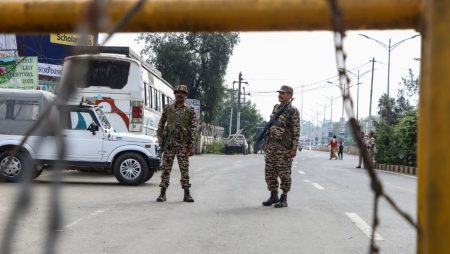The Shenzhen Intermediate People’s Court delivered a death sentence to a 44-year-old Chinese man surnamed Zhong for the fatal stabbing of a 10-year-old Japanese boy in September 2023. The boy, a dual national with a Japanese father and a Chinese mother, was attacked while en route to school. This tragic incident occurred on the anniversary of the Mukden Incident, a historically sensitive date marking the beginning of the Second Sino-Japanese War, further complicating the already strained diplomatic relations between China and Japan. While Chinese authorities have classified the stabbing as an isolated and accidental incident, offering no public explanation for the motive, the swiftness of the trial and the severity of the sentence underscore the gravity of the crime within the Chinese legal system.
The attack resonated deeply in Japan, given the victim’s dual nationality and the timing of the incident. The Japanese government, through Ambassador Kenji Kanasugi, closely monitored the legal proceedings in Shenzhen. While the Chinese government’s characterization of the incident as accidental attempts to downplay any potential political motivations and prevent further escalation of tensions, the incident nonetheless fueled public anxieties in both countries about safety and the broader bilateral relationship. The lack of transparency surrounding the attacker’s motive contributes to the unease, leaving room for speculation and potentially hindering efforts to foster trust and understanding between the two nations.
This tragic incident was not an isolated event involving Japanese nationals in China. Just months prior, in June 2023, another attack occurred near a Japanese school in Suzhou. In this instance, a man assaulted a school bus, leading to the death of a Chinese national who bravely intervened to protect a Japanese mother and her child. The Suzhou Intermediate People’s Court also handed down a death sentence to the perpetrator in that case, just one day before the Shenzhen court’s ruling. The proximity of these two violent incidents, both involving individuals connected to the Japanese community in China, raises concerns about the potential for targeted violence, despite official assurances of their isolated nature.
The consecutive death sentences delivered in both the Shenzhen and Suzhou cases demonstrate the Chinese judicial system’s swift and severe response to violent crimes, particularly those involving foreign nationals. Capital punishment remains a legal penalty in China, and the courts’ decisions in these cases reflect the seriousness with which the authorities regard such acts of violence. However, the swiftness of the judicial processes and the lack of publicly available information about the investigations and trials raise questions about due process and transparency. While the sentences may satisfy calls for justice, they also highlight the opaque nature of the Chinese legal system, which can contribute to distrust and complicate international relations.
The confluence of these violent incidents against a backdrop of already strained Sino-Japanese relations creates a challenging diplomatic landscape. Historical tensions stemming from Japan’s wartime actions in China continue to resonate, and contemporary disputes over territorial claims in the East China Sea and differing geopolitical alignments further exacerbate the relationship. These attacks, regardless of their purportedly isolated nature, add another layer of complexity to the bilateral dynamic, potentially fueling nationalist sentiments in both countries and hindering efforts towards constructive dialogue and cooperation.
Moving forward, the focus should be on preventing further incidents and fostering greater understanding and trust between China and Japan. Transparency and open communication are crucial. While the Chinese government has characterized these attacks as isolated incidents, a more thorough investigation and public disclosure of the findings, including the perpetrators’ motives, could help address public concerns and reduce speculation. Furthermore, both governments should work together to ensure the safety and security of their respective citizens residing in each other’s countries, promoting cultural exchange programs, and strengthening people-to-people ties to counter negative perceptions and foster a more constructive bilateral relationship. Ultimately, addressing the underlying tensions and fostering mutual respect will be essential to preventing future tragedies and building a more stable and peaceful future for both nations.










